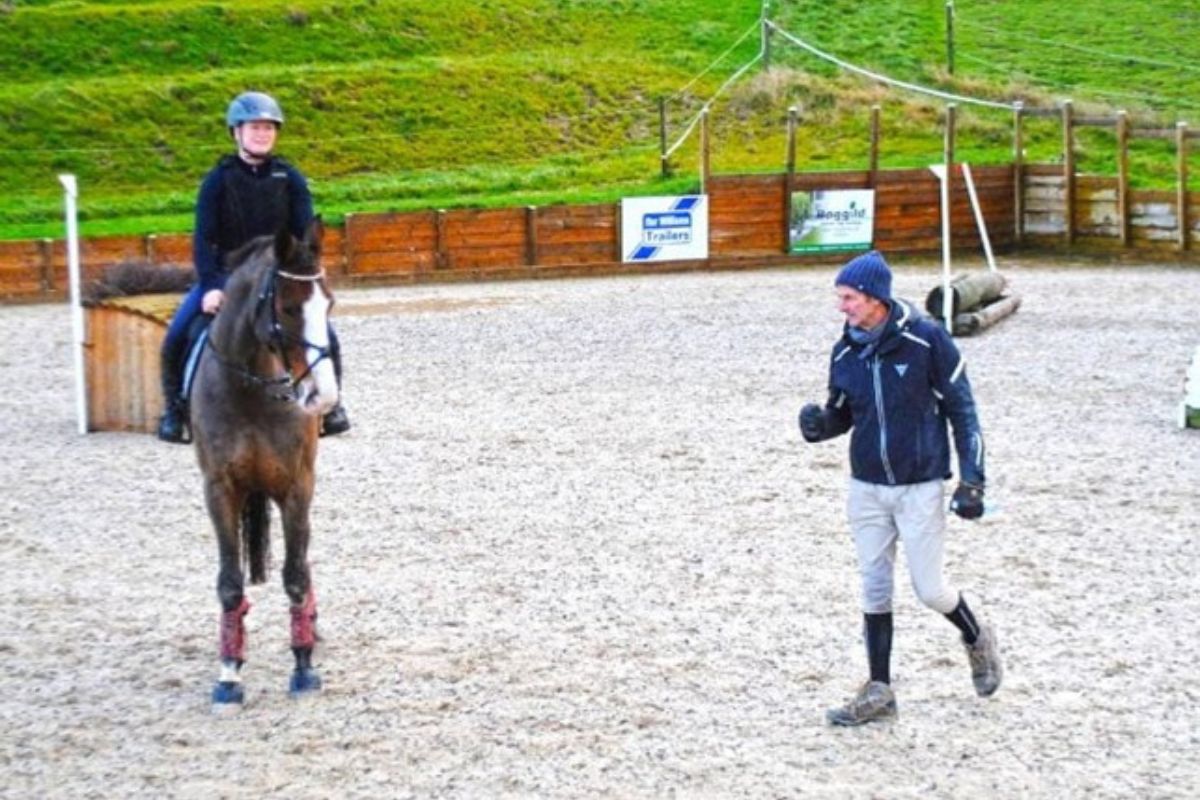Menu

Showing your trainer respect is important. There are so many articles to be found on how to be a good coach or trainer. But there are actually few on how to be a good student. How do you behave in order for the trainer to fell that you respect him or her? Here are some tips that can help you build a healthy and educational relationship with your trainer, in order to get a really good collaboration.
You do not get rich from teaching others, unless maybe you are a famous top rider. While teaching might feel like the weekly luxury you give yourself and your horse, it is also what gives your trainer butter on the bread. Do not complain about the price and make sure to pay on time. If you feel that it is not worth the money, it is better to search the market for a different instructor.
Sometimes it can be difficult to get going and you may have a clothing crisis or have forgotten your stuff. Maybe these are some of the reasons why you sometimes arrive late? We recognize the need to look sharp for your training session, but the time you have with your trainer is short and there are probably other students coming in after you.
If for some reason you cannot make it to a training session, remember to let your instructor know as early as possible. Of course, emergencies can occur, but if you are unable to give a 24-hour notice, you will have to pay for the lesson. Most other professionals have a fee they charge for last minute cancellations and your trainer is a professional like any other professional.
You may also like to read: Study: Why horses understand not your words, but your tone of voice
If your lesson is 45 minutes, then you should respect when your time is up. Sometimes you can be lucky enough and get 5-10 minutes more and other times less. Most trainers keep very good track of time and are completely fair about how they spend it.
If he or she tells you that your left leg has slipped forward, it is probably because it actually has. Your trainer sees your body from the outside and can see when you are doing something wrong. Do not start a discussion about it. Instead use your energy to ride.
Do not expect your trainer to be a psychologist or therapist who can pay attention to all your problems at work or at home. That is an unreasonable expectation, and that is not what they are here for. So, unless it has a direct impact on your riding, park your mental challenges in the stable. Whatever you do, do not bring your problems with you onto the back of your horse. He will notice them right away and act upon it.
Your trainer may be amazing but remember that he or she is also just made of flesh and blood and cannot perform miracles. No trainer can enable you to ride at the Olympics after 30 days of training. You cannot get full-time results with part-time efforts. If you can only ride two days a week, you need to be realistic about what it means for your progress as a rider.
Your horse cannot go from Beginner to Grand Prix in two months. Also be realistic about your horse's abilities and talent and do not push it beyond the limit of what it is physically capable of. It is unfair to expect your trainer to teach your horse to do something it will never be able to achieve.
Some riders forget that the benefits of teaching come when your trainer is not standing in the middle of the arena telling you what to do. Learning should propagate and give you tools that you can use in your own daily training. So do not expect to make progress if you and your horse do not practice on your own. Otherwise, your trainer has to start from scratch every time you meet.
It may sound a little harsh, but it is the truth. In most cases, it is a pilot error that causes the transition into canter to fail. And we riders have so many excuses: the horse is unconcentrated, it is stupid, it does not understand what I want to do.
Instead, remind yourself that it is precisely the things you are having difficulty with that your teacher needs to help you improve. Do not think that you have to perform a Grand Prix ride because your trainer might have participated in a prestigious competition in Germany 100 years ago. Your teacher is there to help you and not judge you.